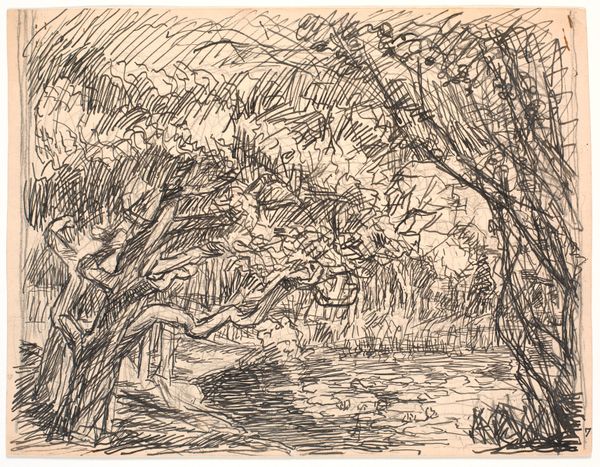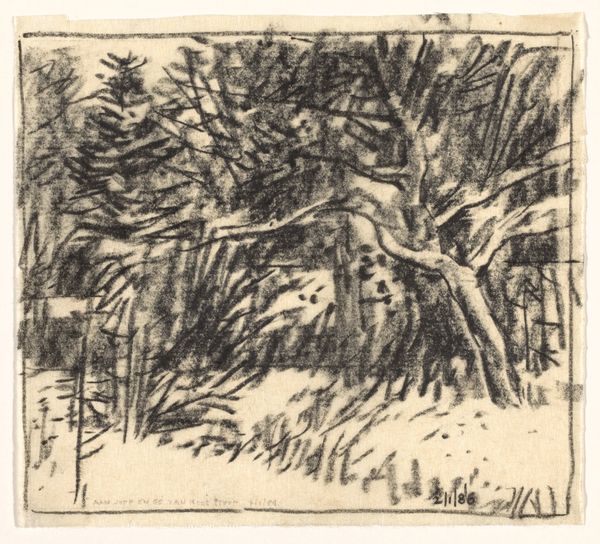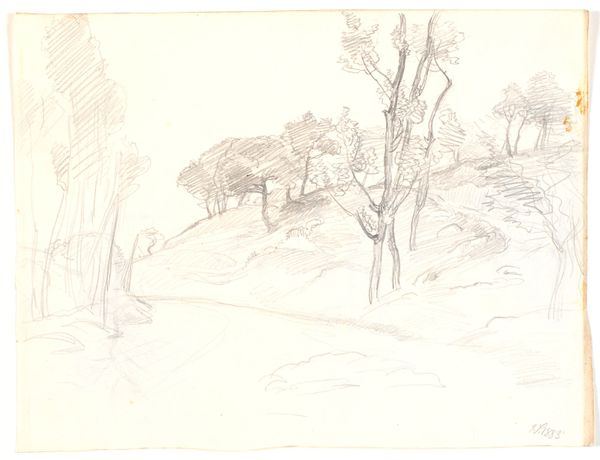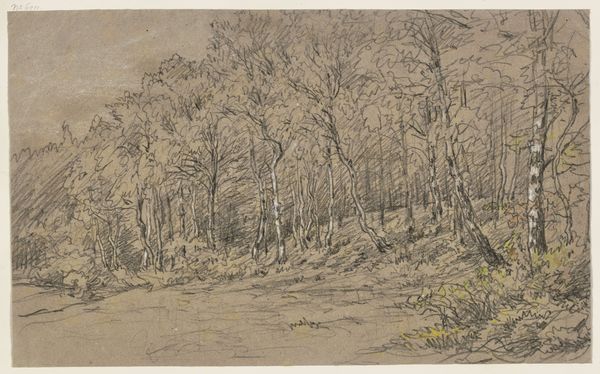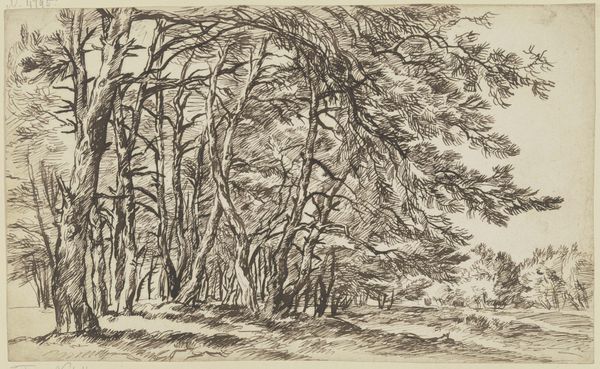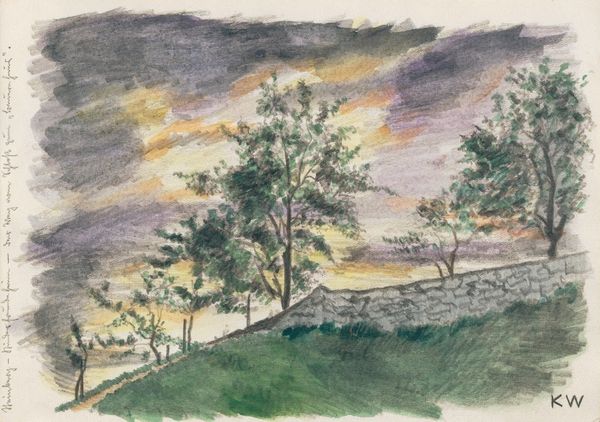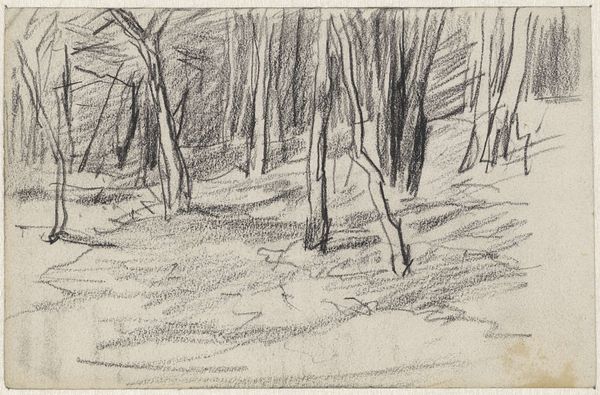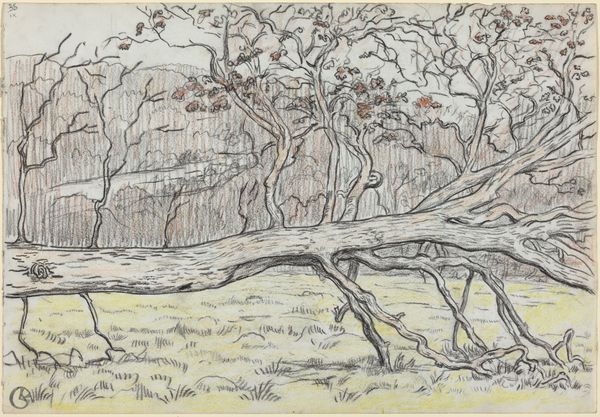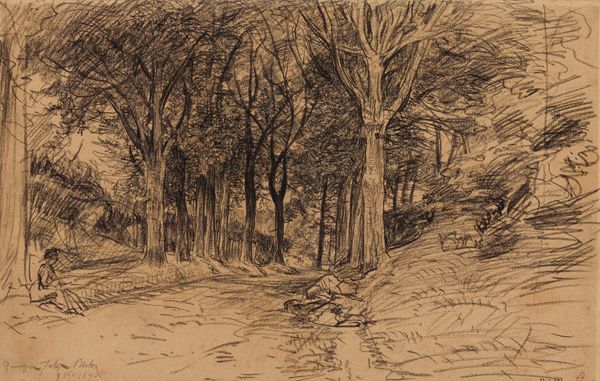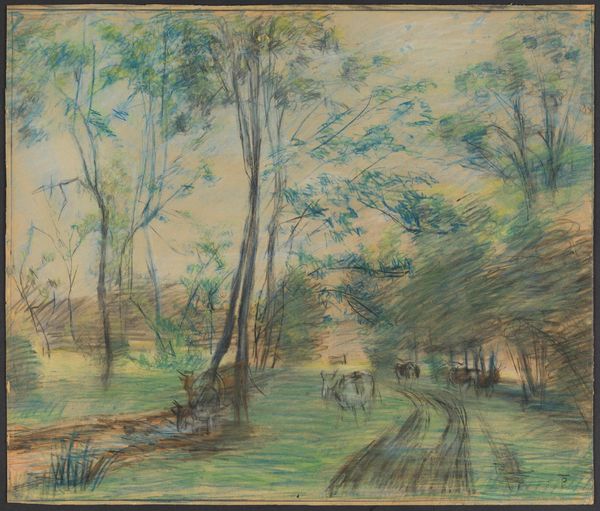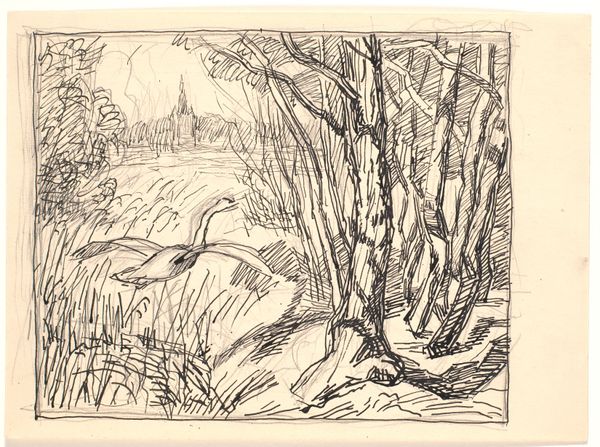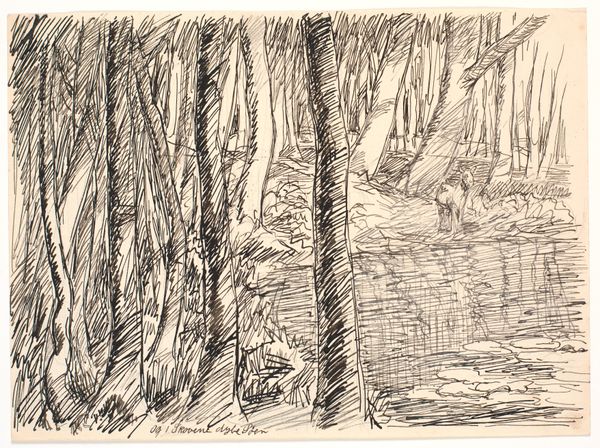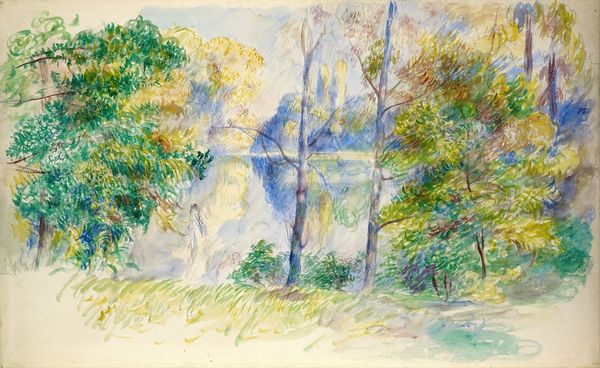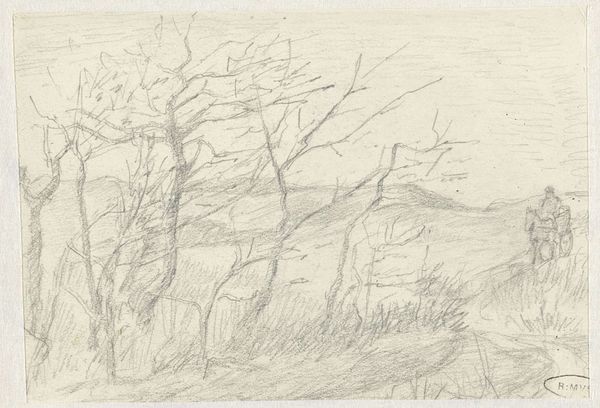
drawing, paper, pencil, chalk, pastel
#
drawing
#
landscape
#
paper
#
pencil
#
expressionism
#
chalk
#
pastel
Copyright: Public Domain
Editor: Here we have Otto Mueller's "Landscape," created in 1926 using pencil, chalk, and pastel on paper. I’m struck by its simplicity, a kind of quiet observation of nature. How would you interpret this work within the broader context of its time? Curator: Given that Mueller was associated with the Expressionist movement, it's crucial to see this "Landscape" not just as a depiction, but as an expression of inner feeling in a politically turbulent interwar Germany. Look at the stark lines and the almost unnervingly bright pastels. Does it remind you of anything specific about German history at this time? Editor: It feels unsettling, almost brittle. There’s a vibrancy fighting against… something muted, grey, perhaps? It seems to hint at an unease beneath the surface, but how might that relate to societal issues specifically? Curator: Well, Expressionism often served as a critical voice during times of societal upheaval. The simplification of form can be viewed as a reaction against industrialization, a longing for a simpler, more authentic connection with nature. But this landscape lacks the idyllic qualities one might expect. How does the setting depicted reflect possible sociopolitical conditions, not just personal expression? Editor: It's not idealized, is it? The path in the foreground appears worn and cracked. The trees are almost skeletal in places. Could that suggest a land, and by extension a society, that's fractured or exhausted after the First World War? Curator: Exactly! The cracked path becomes a potent symbol. It reflects a sense of disillusionment and the instability felt throughout Germany at the time. Mueller presents a landscape marked by hardship. This reading goes beyond aesthetics; it implicates the art in broader dialogues concerning social trauma. Editor: So, while seemingly a simple landscape, it's deeply embedded in the social and political fabric of its time. I never considered landscape as something political before. Curator: Indeed, context transforms a seemingly innocuous image into a powerful statement about the human condition. Now, when you view other landscape art, you might consider its cultural and historical ties.
Comments
No comments
Be the first to comment and join the conversation on the ultimate creative platform.
